Navigating neurodivergence: Mothers open The Neuro Bridge to support children and their families
|
Published: 04-09-2025 6:01 PM
Modified: 04-10-2025 11:54 AM |
EASTHAMPTON — For Amy Christenson, a formative memory involving her son, an escalator and a kind stranger is driving a mission to change the world.
Christenson’s son Ben, now 9 years old, has autism. When Ben first received this diagnosis, Christenson said there was some relief — she could begin to forge a path forward and help her son. But the period after being given this diagnosis is often rife with confusion, powerful emotions and a feeling of loneliness for parents of a neurodivergent child.
“When my son was diagnosed, it was really overwhelming,” Christenson said. “There’s a huge gap between getting the diagnosis and being able to effectively treat the diagnosis.”
When Christenson and Ben were out running errands one day, Ben became enamored with the nearby escalator. He wanted to ride it again and again, traveling up and down in a loop that lasted around 90 minutes. Christenson recalled the incident as highly emotional — she felt isolated, anxious and worried about what those around them would think or say. Her top priority in that moment became protecting Ben from others, and from himself, even as the stress of the situation moved her to tears.
It wasn’t until an observant stranger approached and asked her “What do you need?” that she realized just how impactful a little bit of understanding can be for a parent with a neurodivergent child. Neurodivergence refers to people who process information in different ways from their peers, such as those with autism or ADHD.
“That was life-changing,” Christenson said of that moment, explaining that acceptance and understanding are two of the most important aspects in making communities more supportive for neurodivergent children and their families. “I want to be that stranger for other families.”
That memory is a driving force in Christenson’s vision for The Neuro Bridge, a new organization designed to support neurodivergent children and their families, giving them the connection and resources they need. Christenson and co-founder Sue Hopkins created The Neuro Bridge with hopes of using their own experiences raising neurodivergent children to help families navigate life post-diagnosis, and educate communities on how they can be more inclusive.
“You name it, we’ve experienced it, we’ve researched it,” said Christenson. She added that Hopkins, whose son is two years older than Ben, provided much-needed mentorship for her that the pair hopes to expand to others.
Article continues after...
Yesterday's Most Read Articles
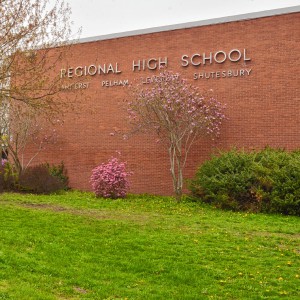 Student petition leads Amherst Regional High to reopen bathrooms during lunch; school will explore other ways to address vaping
Student petition leads Amherst Regional High to reopen bathrooms during lunch; school will explore other ways to address vaping
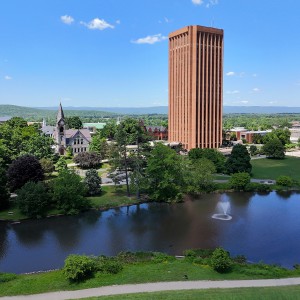 UMass faculty calls on land grant universities to join in fight against Trump administration; McGovern, AG also weigh in
UMass faculty calls on land grant universities to join in fight against Trump administration; McGovern, AG also weigh in
 Raising alarm: Towns over Barnes Aquifer raising alarm over lithium battery storage facility planned for Westfield
Raising alarm: Towns over Barnes Aquifer raising alarm over lithium battery storage facility planned for Westfield
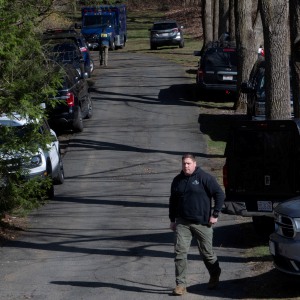 Hadley man detained after chemicals go missing
Hadley man detained after chemicals go missing
 Jones Library project in Amherst a go: Effort to rescind $46.1M in funding fails at emergency meeting
Jones Library project in Amherst a go: Effort to rescind $46.1M in funding fails at emergency meeting
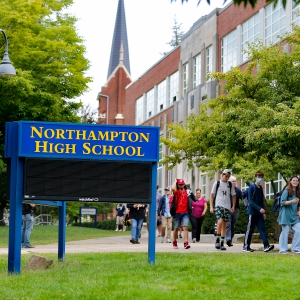 Guest columnist Bryan Jersky: The facts about Northampton school meals
Guest columnist Bryan Jersky: The facts about Northampton school meals
At their newly launched 49 Union St. location — the former site of POH-keh Bowl, owned by fellow co-founder Sunia Hood — the organization is beginning to offer a variety of services. These include family consultations, support for caregivers, hands-on workshops, a community awareness program helping local businesses adopt inclusive practices, and sensory-friendly play group hours where parents can drop their children off for a few hours of interaction and play in an environment that caters to their unique needs.
The Neuro Bridge gives children access to a variety of sensory toys, crafts and activities — as well as a sensory gym complete with a swing, a small trampoline and a ball pit. Eventually, they hope to utilize the space’s preexisting kitchen to provide cooking activities as well.
Alison Wiseman recently took her 7-year-old son, Henry, to one of The Neuro Bridge’s play groups. She said that she felt comfortable dropping Henry off there, because he was in the hands of caregivers who have neurodiverse children of their own and would fully understand his needs.
“He loved it. He got to be around other children, and he did a lot of artwork,” Wiseman said. “When I picked him up, he said it was the best day he ever had.”
Now, she plans to keep taking Henry back periodically for play groups. The next one is even marked on a calendar at their house, “because he’s so excited.”
The play group also gave Wiseman a chance to make a dent in some of her college assignments, unburdened by worries about how her son would fare in the group, or whether his behavior would be judged.
“This is a judgment-free zone,” said Hopkins. “There’s no need to say ‘I’m sorry’ here.”
The organization hopes to create more of these judgment-free zones in the community by offering training to businesses on how they can make their spaces and services more accessible to neurodiverse kids. For example, The Neuro Bridge has plans to work with local restaurants on incorporating sensory-friendly dinners into their schedules, which may include changes to lighting or quieter music. They are also beginning to work with local hair salons to train staff on giving haircuts to neurodiverse children.
“Everyone should be able to have a haircut,” said Christenson.
Hopkins and Christenson emphasized that, as diagnostic tools for neurodiversity continue to evolve, a societal acceptance of children on the spectrum continues to grow in importance. This is not only to ensure that all children have opportunities to develop critical social and communication skills, but also to ensure that children and caregivers receive the kind of unconditional love and support that can change their lives for the better.
Though their journey is starting in Easthampton, Christenson said that she and Hopkins “have grand plans, and hope to change the world.”
Alexa Lewis can be reached at alewis@gazettenet.com.












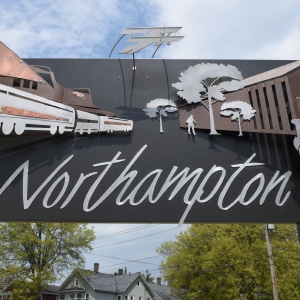 Area briefs: Haydenville church Easter Soup & Bake Sale; Frontier Community Access editing drop in hours; Northampton Democratic City Committee to caucus; Traffic advisory for DAR State Forest
Area briefs: Haydenville church Easter Soup & Bake Sale; Frontier Community Access editing drop in hours; Northampton Democratic City Committee to caucus; Traffic advisory for DAR State Forest Community printing hub takes shape in Easthampton
Community printing hub takes shape in Easthampton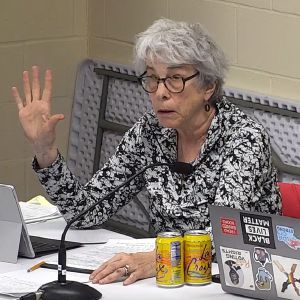 Northampton School Committee backs ‘strong’ budget, while acknowledging they likely won’t get it
Northampton School Committee backs ‘strong’ budget, while acknowledging they likely won’t get it
